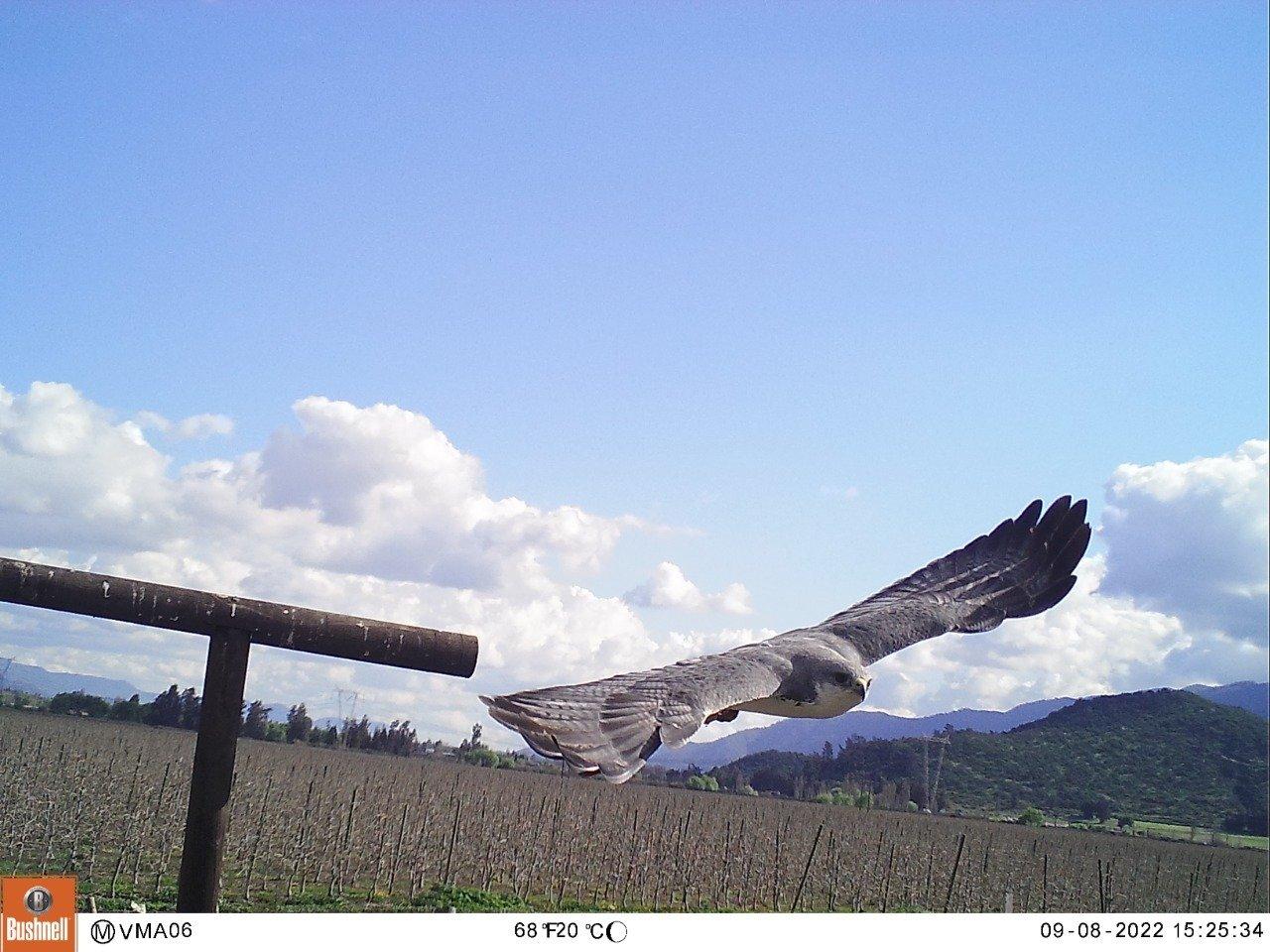
Image: Variable hawk (Geranoaetus polyosoma) using a bird perch placed by farmers to encourage natural pest control in an intensive fruit farm in Chile. Credit: Nadia Rojas
Tracking global progress towards sustainable agriculture that protects biodiversity and enhances natural capital
Supervisor: Professor Lynn Dicks
This PhD project aims to validate the Cool Farm Biodiversity Metric against real biodiversity, ecosystem service and natural capital data for the first time. The student will analyse statistical associations between the metric scores and biodiversity data gathered using new scalable methods such as acoustic or computer vision-based monitoring, citizen science, environmental DNA, or remotely sensed land use, habitat structure and connectivity. These transformative technologies are revolutionising biodiversity monitoring, with very large amounts of data being generated and artificial intelligence approaches rapidly developing to process and interpret them. The student will further develop the Cool Farm Biodiversity metric, completing tropical forest and grassland modules by designing and implementing rigorous evidence synthesis and expert elicitation processes.
There are also opportunities to quantify possible trade-offs between food production and managing farmland for biodiversity, at a range of scales. Despite their promotion in international sustainable development policy, the use of ‘biodiversity friendly practices’ on farms has been criticised because of the risk that reducing the impacts on biodiversity in one place drives agricultural expansion or further intensification in another, even more biodiverse location, somewhere else in the world. Quantifying patterns of land use change or food production associated with Cool Farm Biodiversity metric scores can evaluate this risk directly.
Type of work
The student will work with commercial or NGO partners to gather data on Cool Farm Biodiversity metric scores for a range of locations where biodiversity data are also available. They will either source existing and/or gather new data on biodiversity in these locations (according to their expertise and interest, this could involve remote sensing, including passive acoustic methods, or fieldwork). They will use established methods of formal prioritisation and expert elicitation, to complete new versions of the Cool Farm Biodiversity Metric for tropical forest and grassland biomes. They will work with the Conservation Evidence team to develop methods by which Cool Farm Biodiversity metric can efficiently interface with the evidence database.
Importance of the area of research concerned
Biodiversity plays a key role in food production, contributing to clean water, soil maintenance, pest control and pollination. Yet biodiversity is declining rapidly, including common species delivering these important ecosystem services. Agriculture itself is a main driver of this biodiversity loss and the new Global Biodiversity Framework specifies ‘a substantial increase of the application of biodiversity friendly practices’ in farmland, as part of the target to manage agricultural areas sustainably by 2030. The Cool Farm Biodiversity metric designed by the Cambridge Agroecology group (Crowther et al 2024) is an online tool capable of tracking progress towards this target. It quantifies how well farm management supports the biodiversity important to food production, including agrobiodiversity (diversity of crops and livestock); it has been used on thousands of farms worldwide. A version for farms in tropical forest areas, including coffee, cocoa and oil palm, is currently being tested in Columbia in partnership with the Cool Farm Alliance.
References
Crowther, L. P., S. H. Luke, E. C. Arellano, C. G. McCormack, V. Ferreira, J. Hillier, R. Heathcote, H. Kloen, A. Muñoz-Sáez, P. Oliveira-Rebouças, F. Oliveira da Silva, N. Rojas-Arévalo, N. Zielonka & L. V. Dicks (2024) The Cool Farm Biodiversity metric: An evidence-based online tool to report and improve management of biodiversity at farm scale. Ecological Indicators, 161, 111897.
